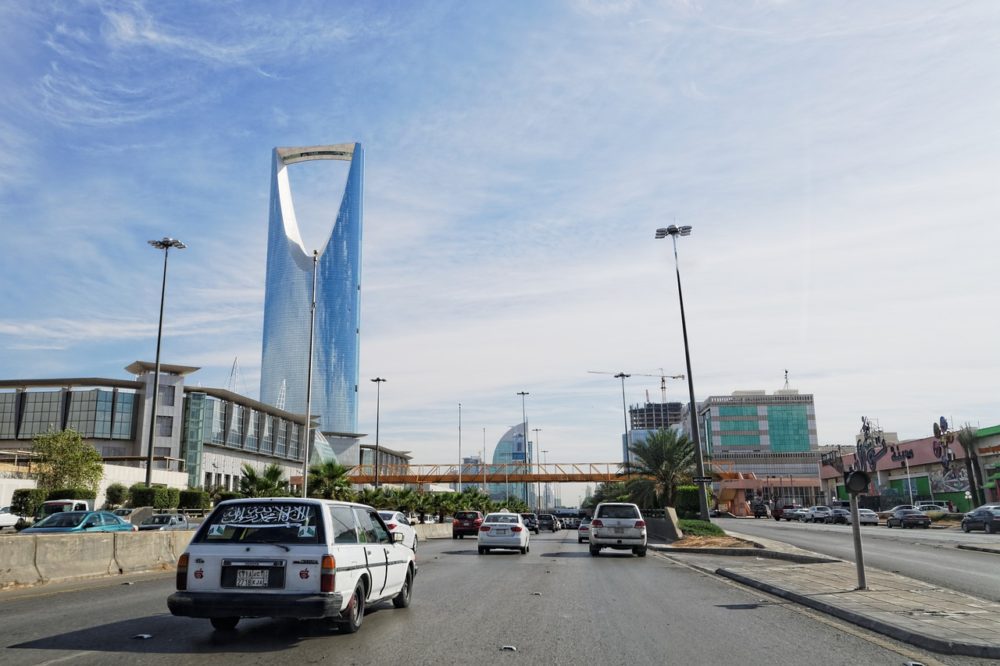Saudi Arabia bid for 2034 World Cup deemed ‘medium risk’ in evaluation report

Saudi Arabia’s bid to host the 2034 men’s World Cup has been deemed ‘medium risk’ for human rights in FIFA’s evaluation report, amid warnings migrant workers will die in preparing the country to stage the tournament.
The document also leans towards the likelihood of a second World Cup played in the winter – during the regular European club season – as was the case for Qatar in 2022 when the finals were played in November and December.
The bid also secured a record score of 419.8 out of 500, better than 2026 hosts Canada, Mexico and the United States.
The bid evaluation report has been published by FIFA ahead of a vote by its member national associations on December 11, where Saudi Arabia are the sole bidders.
Discrimination
Human rights campaigners Amnesty International called for a halt to that vote earlier this month, with its head of labour rights and sport Steve Cockburn saying: “Fans will face discrimination, residents will be forcibly evicted, migrant workers will face exploitation, and many will die.”
The bid evaluation report scores Saudi Arabia as medium risk for human rights, acknowledging the “significant effort and time” needed to implement reforms.
However, it adds: “It is important to note that the bid involves significant opportunities for positive human rights impact. There is a good potential that the tournament could serve as a catalyst for some of the ongoing and future reforms and contribute to positive human rights outcomes for people in Saudi Arabia and the region that go beyond the scope of the tournament itself.”
Amnesty has also pointed out the country’s repressive laws on same-sex relationships and freedom of expression.
‘Inclusive’
The report notes that “the bidder (Saudi) commits to ensuring a secure and inclusive tournament environment free from discrimination”. It references United Nations reports which identified “gaps in legislation to ensure full legal protections of freedom of expression, both online and offline”.
“Addressing potential gaps with respect to freedom of expression would likely take significant effort and time,” the report states.
“However, the event-time measures to guarantee these rights provide a basis for implementation by 2034.”
The prospect of a winter finals is also strong. The report highlights that daytime temperatures in the capital Riyadh in June and July, when the finals are traditionally played, exceed 40 degrees Celsius. Event timing is also scored as ‘medium risk’ as a consequence.
“Taking into consideration local climatic conditions as well as the local calendar of sporting and cultural events taking place in 2034, the exercise of identifying the optimal window for the competition brings with it some complexities,” the report states.
“Nevertheless, the substantial lead-in time to arrive at a men’s international match calendar for 2034 and the flexibility and spirit of collaboration demonstrated by the bidder serve as partially mitigating factors.”
The report also scores Saudi Arabia’s bid low risk for sustainability and environmental protection.
“While the extent of construction would have a material environmental impact, the bid provides a good foundation for delivering mitigation measures to address some of the environment-related challenges,” it states.
Sponsorship
Earlier this year FIFA agreed a four-year sponsorship deal with Saudi oil and gas company Aramco worth a reported 400 million US dollars (£314million). The Saudi state directly or indirectly owns almost 98 per cent of the shares in Aramco, which environmental organisation Client Earth has identified as the biggest corporate greenhouse gas emitter in the world.
Amnesty International has been contacted for comment regarding the report.
FIFA also published a report late on Friday – finished by independent consultancy Human Level last December – which examined what compensation should be offered to migrant workers, and the surviving families of migrant workers, involved in building infrastructure in Qatar in the build-up to the 2022 finals.
It found: “FIFA and other organisations who participated in the delivery of the World Cup… have a shared responsibility (and duty in the case of the State of Qatar) to make remedy available to workers impacted.”
The study found meaningful, timely and effective remedy for the workers and their families was “achievable” and that FIFA was “crucial” in ensuring it happened, by leveraging its reputation and influence.
Earlier this week Amnesty criticised the scope of a 50m US dollar tournament legacy fund outlined by FIFA, saying it was “shameful” that it did not cover compensation for migrant workers in Qatar.
Support our Nation today
For the price of a cup of coffee a month you can help us create an independent, not-for-profit, national news service for the people of Wales, by the people of Wales.







Hold the men’s and women’s world cups together and see if Saudi is still interested.